The South 1790-1860
History
cotton belt
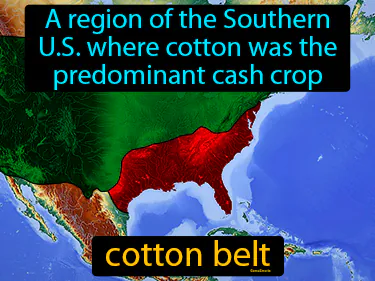
A region of the Southern U.S. where cotton was the predominant cash crop. Cotton Belt. The Cotton Belt refers to areas in the Southern United States where cotton farming dominated the economy during the 19th and early 20th centuries.
cotton gin
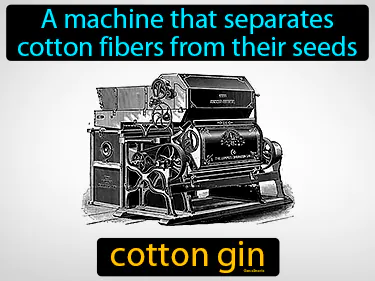
A machine that separates cotton fibers from their seeds. Cotton gin. The cotton gin, invented by Eli Whitney in 1793, revolutionized the cotton industry by efficiently removing seeds from cotton fibers.
factors
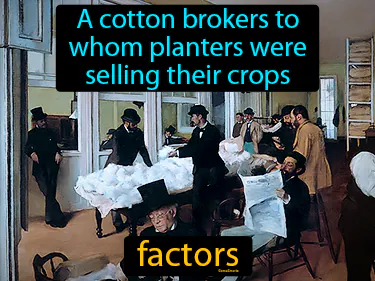
A cotton brokers to whom planters were selling their crops. Factors. In history, factors were agents who handled the sale and trade of goods, particularly in the cotton industry, acting as intermediaries between producers and markets.
folktales
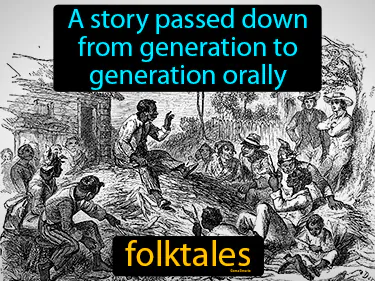
A story passed down from generation to generation orally. Folktales. Folktales are traditional stories shared by word of mouth that reflect cultural beliefs and values.
Nat Turner
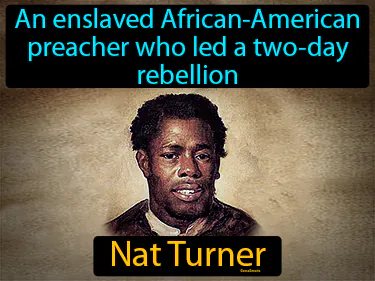
An enslaved African-American preacher who led a two-day rebellion. Nat Turner. Nat Turner was a key figure in U.S. history known for leading a significant slave revolt in Virginia in 1831.
oral tradition
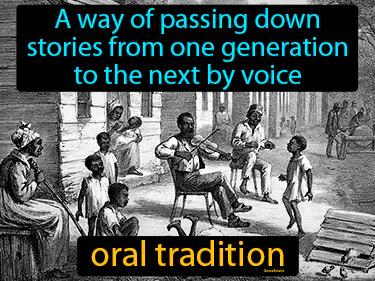
A way of passing down stories from one generation to the next by voice oral tradition. Oral tradition is the practice of preserving and sharing historical and cultural information through spoken stories and tales.
overseer
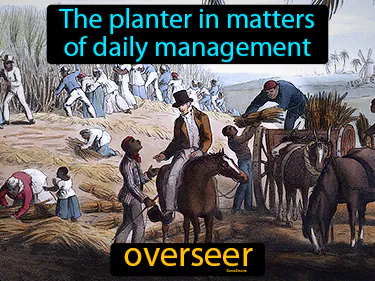
The planter in matters of daily management. Overseer. An overseer in history was someone responsible for supervising and managing enslaved laborers on plantations.
planters
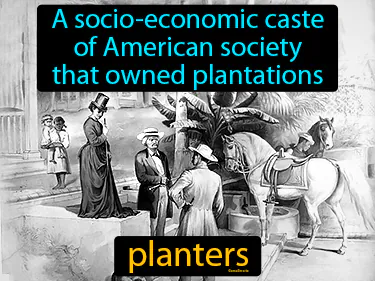
A socio-economic caste of American society that owned plantations. Planters. Planters were wealthy farmers in the southern United States who owned large estates and enslaved people to work on them.
spirituals
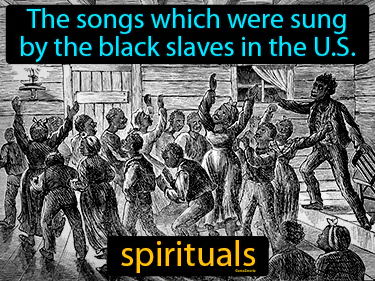
The songs which were sung by the black slaves in the U.S. are called spirituals. Spirituals are religious folk songs that were created by enslaved African Americans, expressing their faith and hope for freedom.
Tredegar Iron Works
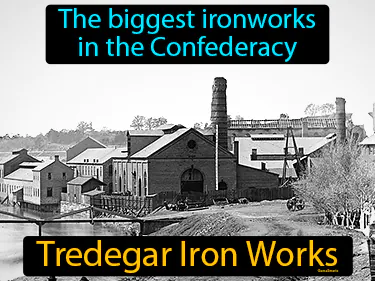
The biggest ironworks in the Confederacy Tredegar Iron Works. Tredegar Iron Works was a crucial facility for the Confederacy during the American Civil War, producing weapons, ammunition, and other materials necessary for the war effort.
yeomen
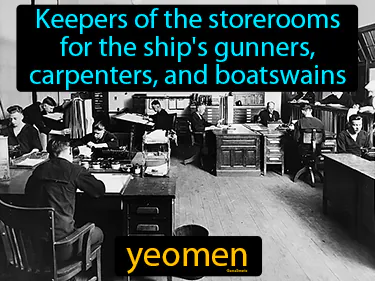
Keepers of the storerooms for the ship's gunners, carpenters, and boatswains. Yeomen. Yeomen were historically small landowners and farmers in England, often known for their hardworking and independent nature.